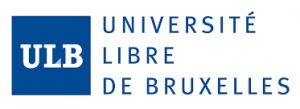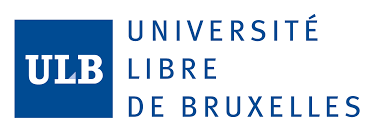
Date: February 8, 2019 – February 9, 2019
Venue: Centre Interdisciplinaire d’Étude des Religions et de la Laïcité (CEIRL), Université Libre de Bruxelles
Avenue Franklin Roosevelt, 17
Bruxelles 1050, Belgium
Keynote speakers:
Anne-Françoise Schmid
Mines Paris Tech
Jordanco Sekulovski
Temple University Japan
Honorary guest:
François Laruelle
Organisers:
Pierre Bonneels & Takeshi Morisato
Université Libre de Bruxelles
Outline:
Philosophy or philosophical knowledge functions as a foundational rational core of all modes of thought attempting to envision the real. The paths philosophy undertakes historically embrace a totalizing ambition in the supposed attempt to define, grasp and/or seize the essence of the real. Laruelle’s non-standard philosophical approach offers a new path, one of least resistance that moves away from the pre-established pursuits to grasp and deliver us the real (le Réel). This elusive yet ultimate desire of philosophy defines all forms of (philosophical) thought without exception. Traditional philosophy and metaphysics are in ceaseless pursuit of totality in regard to various practices and modes of production as well as use of knowledge.
Moreover, non-standard philosophy tries to establish what will serve as an underlying principle of democracy in thought. Philosophy re-produces and reasserts itself through the production of knowledge, feeding on its own self-sufficiency while non-standard philosophy tries to liberate knowledge by using its generic potential so that new forms of thought and knowledge can emerge. Philosophy defines, confines, and shapes subjects and objects, non-standard philosophy tries to use the available knowledge in a way that eludes known philosophical constraints. There can not be real democracy without first and foremost instituting a democracy in thought, and this is where non-standard philosophy will be used to provide a future platform and methodology grounded in genericity of knowledge and immanence rather than traditional metaphysics. We need a novel path of least philosophical resistance if we are to achieve these goals.
Submission deadline: Nov 30th, 2018
Submission guidelines:
Please submit your cv and abstract to Takeshi.Morisato@ulb.ac.be or jsekulovski@tuj.temple.edu. The abstract should be 300-500 words.
All submissions must be in .doc, .docx or .pdf formats and should be prepared for blind review.
Please include in your email the following details: (i) author’s name; (ii) paper title; (iii) word count; (iv) institutional affiliation; and (v) contact information.
Responses to submissions will be sent by December 14th, 2018.
Please send any questions:
Takeshi.Morisato@ulb.ac.be
jsekulovski@tuj.temple.edu.


